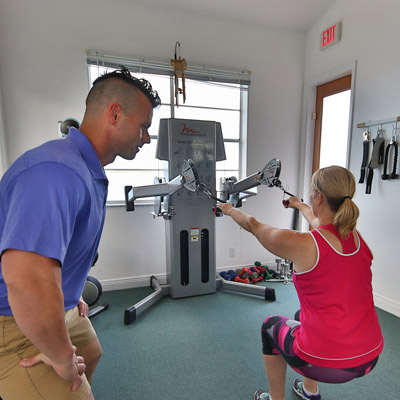Nutrition in Early Recovery: Heal and Nourish

"I think that power is the principle. The principle of moving forward, as though you have the confidence to move forward, eventually gives you confidence when you look back and see what you’ve done.."Robert Downey, Jr.
Quick Links for Nutrition in Early Recovery:
Step 1 - Heal and Nourish the Body
The first step in any detox program is to keep the patient alive. and that is where modern medicine plays such an important role. As addicts we become completely mentally and (in most cases) physically dependent on our drug. Coming off those drugs can be very difficult and in the case of alcohol and benzodiazepines it can be life threatening. Not to mention the depression, anxiety, and uncomfortability of coming off any drug can be more than some people can handle which can lead to suicide. Modern medicine and excellent training allows for most detox centers to keep death rates extremely low.
But in reality, why are we only focusing on patients being comfortable and not dying? Addicts have spent, in some cases years, putting a toxin or poison in their bodies, their bodies have been in a state of controlled trauma for as long as they have been introducing drugs or alcohol into their system. Over that time, their bodies have adjusted and gotten used to the poison, now we take away the toxin, and their bodies go into even greater trauma.
And the current method of treating all this trauma is with prescribed medication, a vitamin B1 supplement, candy, soda, sugar drinks (like Gatorade), and processed food. Do patients going through withdrawal from drugs and alcohol need carbohydrates? Absolutely! Do they need junk food? Absolutely NOT!
Generally addicts don't follow a great diet plan getting all their vitamins and minerals when they are in their active addiction. They are also causing trauma by introducing toxins which require a surplus of vitamins and minerals to properly dispose of, which leaves nothing left to handle normal body and brain function.
When detox centers put them through increased trauma, their body is in more need of those vitamins and minerals than ever.
At this point of detox, the patient's body is a sponge, their body will absorb and use anything it possibly can to make it through this level of stress. This time is critical to get as much vitamins, minerals, and phytonutrients into the body as possible so it can stop the destruction and begin the healing.
This time period is so important, what we introduce into the body during these first few weeks will teach the body what it will need to rely on from that point forward. If what we introduce is processed junk that has been engineered to cause an addiction, well, that is already putting 2 strikes against a successful life in recovery. The brain is immediately introduced to a new addictive substance.
On the other hand, if we introduce the most natural of food choices, we teach the body what it once knew. That true earth grown foods are what the body needs to grow. At the same time we replenish the body with all the vitamins and minerals it needs to actually repair itself. Now we have a fighting chance.
List of Important Nutrients in Early Recovery
Multivitamins: Drugs and alcohol deplete all soluble vitamins in the body, especially during the early stages of withdrawal. A round of multivitamins helps restore low levels of vitamins that your body badly needs.
Additionally, vitamin deficiencies are partially responsible for much of the lethargy, skin irritation, memory loss and depression people experience in the early stages of detox and recovery. A good multivitamin should help optimize your body’s functions and help you feel a little more “normal.”
Vitamin C: Abusing drugs and alcohol often deplete the body of vitamin C. Taking extra vitamin C may be beneficial in supporting the immune system. It can also help to reduce the stress that your body creates as it returns to normal after withdrawal.
B Vitamins: After years of heavy drinking or drug use, B vitamins are often severely depleted. B1 (thiamine), B3 (niacin) and B5 (pantothenic acid) play a role in turning sugar from your body into energy. Additionally, B6 and B12 play an important role in producing blood cells and keeping the nervous system healthy. B8 (inositol) and B9 (folic acid) are helpful in treating deficits that relate to dietary habits and substance-related changes in the digestive track.
B vitamins – especially niacin supplements – have cleansing properties that help to quickly remove toxins introduced during drug use. Taking any (or all) of these vitamins helps bring your body to a normal, more regular state.
B vitamins also help the liver recover.
Vitamin E: Vitamin E acts as an antioxidant in the body to help reduce damage from chemicals and oxidative stress. It works to restore proper functioning of blood cells and may help repair skin damage that occurred due to excessive skin picking or abscesses that formed due to drug injection.
Calcium And Magnesium: A major withdrawal symptom from drugs and alcohol is anxiety, which can be severe. Calcium and magnesium help calm the central nervous system and relieve anxiety. They may also help relieve muscle tension, twitches and cramps that frequently occur during detox.
Garlic: Garlic helps your body detox from and eliminate THC, the active ingredient in marijuana. Instead of eating garlic, try taking garlic pills every day. Or you can take a daily vitamin supplement that includes garlic as one of its main ingredients.
Ginger: Ginger acts as a stomach soothing food item, it takes away nausea better than most over the counter and prescription medications.





